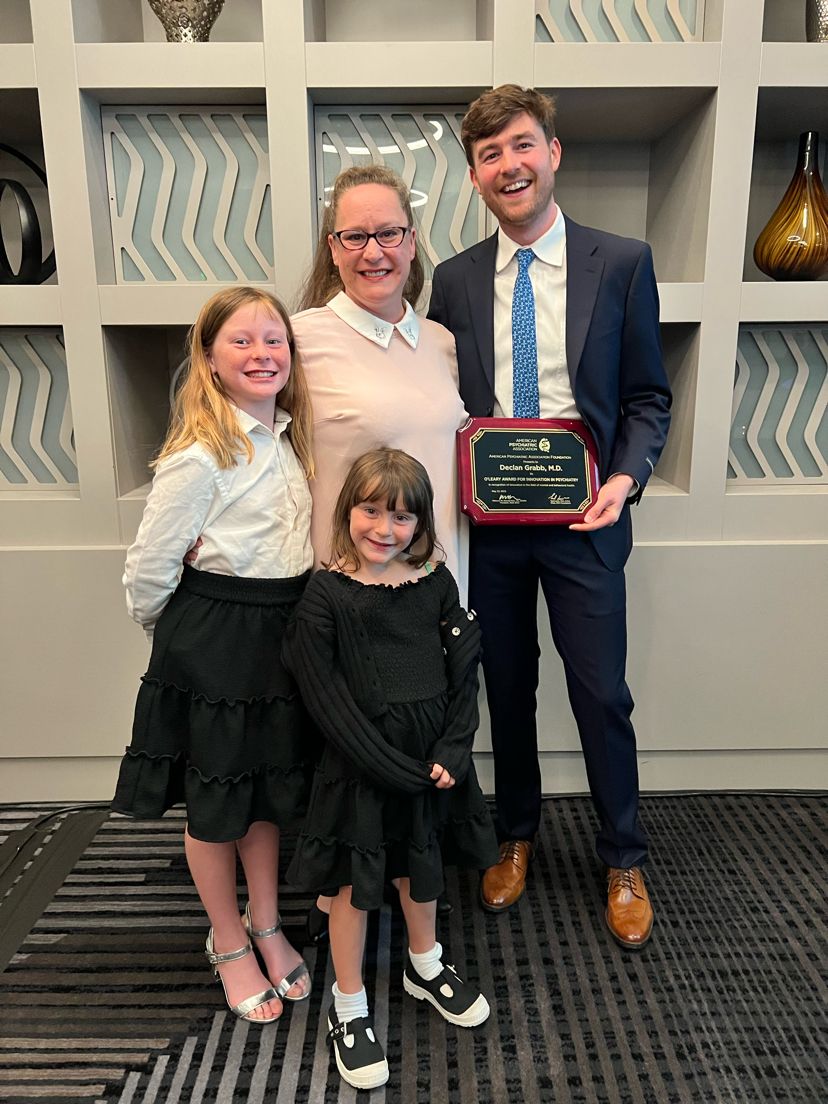
Paul J. O'Leary, M.D., was a leader in the American Psychiatric Association and was also deeply involved in local and state psychiatric organizations, in addition to his full-time practice and his cherished roles of husband and father. After his untimely death on May 12, 2021, the APA Foundation established the O'Leary Award for Innovation in Psychiatry, which funds innovative ideas in mental and behavioral health, to carry forward the spirit of creativity that defined O'Leary’s work. At the APA’s 2023 Annual Meeting in May, Declan Grabb, M.D., became the inaugural winner of the O'Leary Award for his proposal to introduce artificial intelligence into the intake process in psychiatric care.
For many years, the demand for mental health care services has far exceeded supply. Long wait times and overfull calendars mean that many mental health conditions are going untreated, and cries for help unheard. Grabb's solution: an AI model that uses GPT-3 and GPT-4 (large language prediction models) to simulate a "dynamic psychiatric intake interview." The bot, which Grabb programmed in Python, synthesizes the intake information and gives it to the clinician, effectively cutting a step out of the process and increasing psychiatrists’ time to treat more patients. Easily scalable, his inventive solution expands access to care at a time when it is desperately needed.
"The award meant three things," said Grabb in a conversation with the Foundation. "One, it gave me the ability to pursue something that is very in line with my interests, something that is going to improve patient care and improve things for providers. Two, it spurred an interest I will carry forward for the rest of my life: the intersection between technology and mental health. The O'Leary Award allowed me to take more time to explore that interest. Third, it was interesting listening to Dr. [Malinda] O'Leary talk [at the Annual Meeting]. She was reading the proposal and said that it resonated with her because my proposal was very similar to what her late husband was working on...She said that when he would work on projects at home late at night, they would often focus on the overlap of technology and medicine. It's really meaningful to know that I can help carry forward his legacy and try to improve patients' lives while honoring his family."
Grabb, a PGY-4 at Northwestern University's Feinberg School of Medicine, originally hails from Alabama – also Dr. O'Leary's home state. Much of his recent research explores the potential of GPT-3 and GPT-4, whether in medical education or in LGBTQ+ mental health care. Receiving the funding and bringing his proposal to life encouraged Grabb to submit the now-active bot to the Northwestern Innovation Challenge, in which he recently placed as a top three finalist. And in June, he presented his idea and the model to the Society of Digital Mental Health, which he discovered while applying for the award.
O'Leary's widow, Malinda O'Leary, Ph.D., spoke about her husband during a Foundation reception at the Annual Meeting. "She mentioned that he always gave his patients a fortune cookie and would break it open to read the fortune for them," said Grabb. "That curiosity and that empathy in patient care is something I hope to emulate. I would love to approach my patients with kindness and have these unique ways of figuring out what's going on, how they're feeling – in terms of innovation, that is a very cool thing to do."
Learn more about the O'Leary Award for Innovation in Psychiatry or about the use of artificial intelligence in psychiatry.
